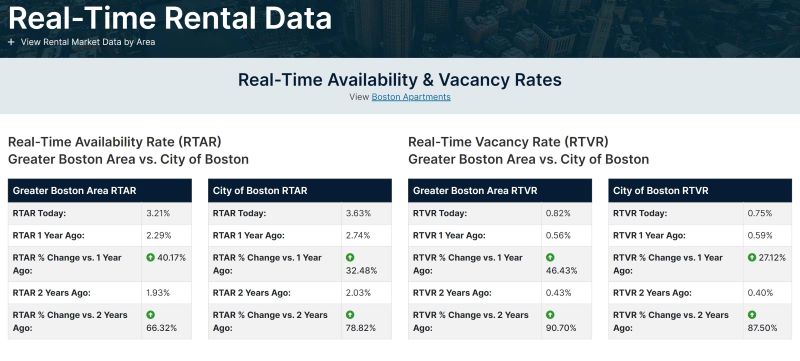
Boston's real estate market is bustling and dynamic, with properties constantly changing hands. But behind every closed deal, there’s a Boston real estate agent who has worked tirelessly to make it happen. The commissions they earn are not just a percentage of the transaction; they result from countless hours of unseen labor. Understanding this hidden work helps us appreciate why these professionals earn their commissions.
- 1. The Foundation: Obtaining and Maintaining a Real Estate License
- 2. Building the Network: Daily Efforts to Secure Listings
- 3. Market Expertise: Educating Clients and Landlords
- 4. Staying Ahead: Monitoring Market Trends
- 5. Showcasing Properties: Media and Presentation
- 6. Logistics: Managing Property Access and Client Transport
- 7. The Emotional Labor: Handling Client Expectations and Concerns
- Conclusion
A new bill, House Bill No. H.4474, titled "An Act Relative to Consumer Rights of Renters," is being considered that would require landlords to cover broker fees. While this seems beneficial to tenants at first glance, it could have several unintended consequences. By placing the burden of broker fees on landlords, property owners may need to increase rents to offset these additional costs. This would ultimately reduce affordability for tenants, disrupting Boston's well-established leasing cycles. The legislation could lead to higher rental prices, more stress in securing housing, and decreased accessibility for less affluent renters, making the housing market less equitable.
Understanding these implications underscores the importance of recognizing the value and hard work of real estate agents, who invest significant time and resources into their profession, often without immediate compensation. Their efforts ensure the smooth functioning of the real estate market, benefiting both landlords and tenants in the long run.

1. The Foundation: Obtaining and Maintaining a Real Estate License
Becoming a licensed real estate agent in Massachusetts is no small feat. The process involves completing pre-licensing courses, passing a rigorous exam, and then committing to ongoing education. This continuous learning is essential to stay on top of the latest laws, regulations, and market trends. Agents must renew their licenses regularly and often attend additional training sessions to maintain their competitive edge. This foundational work is critical, yet it is unpaid and requires a significant investment of time and money.

2. Building the Network: Daily Efforts to Secure Listings
A substantial part of a real estate agent's day is spent on the phone, contacting potential clients. Cold calling 100+ landlords a day to secure new listings and negotiate price reductions is standard practice. Developing and nurturing relationships with property owners is a long-term investment. These efforts are the groundwork for future deals, but they do not guarantee immediate income. Agents invest their time and energy with the hope of future commissions, often spending months cultivating these connections.

3. Market Expertise: Educating Clients and Landlords
Real estate agents are educators at heart. They help clients understand the complexities of the Boston real estate market, providing insights into pricing strategies, market trends, and investment potential. Informed agents lease the most apartments in Boston, because they are able to properly advise their clients with their best interests in mind.
For landlords, agents offer advice on market conditions, rent adjustments, and property improvements to make their properties more attractive. This educational role requires extensive knowledge and the ability to communicate effectively, skills honed over time and through experience, without direct compensation for each consultation. More often than not, agents are advising landlords to lower their rents, not raise them- a fact most renters are unaware of.

4. Staying Ahead: Monitoring Market Trends
To provide the best advice and service, agents must stay ahead of market trends. This involves daily research, analyzing market data including average rents by area, Real-Time Availability Rates, Real-Time Vacancy Rates, Median days on market, and more. Agents adapt their strategies based on these trends to benefit their clients. The time spent on this research is crucial for maintaining their expertise and providing accurate, up-to-date information. However, this is another aspect of their job that is unpaid until a deal closes.

5. Showcasing Properties: Media and Presentation
Marketing properties effectively is a critical part of an agent’s role. This includes obtaining high-quality photos, videos, and virtual tours, and ensuring properties are presented in the best light. Preparing a property for showings, including staging and organizing open houses, requires attention to detail and creativity. These marketing efforts involve out-of-pocket expenses, from professional photography to advertising costs, which agents cover themselves, hoping for a return on their investment when the property sells or leases.

6. Logistics: Managing Property Access and Client Transport
Managing access to properties and transporting clients for viewings are logistical challenges that agents handle daily. Obtaining, organizing, and returning keys for multiple properties require meticulous planning. Additionally, driving clients around to various properties ensures they have a seamless and convenient viewing experience. These tasks are time-consuming and essential for closing deals, yet they represent more unpaid labor in the hope of future commissions.

7. The Emotional Labor: Handling Client Expectations and Concerns
Balancing client expectations with market realities is a delicate task. Real estate agents often act as counselors, providing emotional support and realistic advice throughout the buying, selling, or leasing process. They help clients navigate the stress and uncertainty that often accompany real estate transactions. This emotional labor is a significant yet underappreciated part of an agent's job, performed without any immediate financial reward- and often no financial reward if the client decides not to move forward with any of the apartments.

Conclusion
The numerous hidden tasks and efforts of real estate agents reveal why their commissions are well-deserved. Most of this work is unpaid; agents only earn money when they successfully close a deal. Before seeing any return, they invest their own money into their business, often waiting months before a commission is realized. Even after an offer or lease is signed, they only get paid once all contracts are finalized and money is in hand, which can take additional months. Recognizing this hard work and financial risk underscores the true value of Boston real estate agents. So next time you engage in the real estate market, appreciate the dedication and effort your agent invests to ensure your transaction is a success.
Their commission reflects not just the final deal but the many hours of unpaid labor, the financial risks they take, and the personal investments they make in their business. Their efforts are crucial to maintaining a functional and dynamic real estate market that benefits everyone involved.

Demetrios Salpoglou
Published July 17, 2024
Demetrios has pulled together the largest apartment leasing team in the Greater Boston Area and is responsible for procuring more apartment rentals than anyone in New England – with over 130k people finding their housing through his services. Demetrios is an avid real estate developer, peak performance trainer, educator, guest lecturer and motivational speaker.










